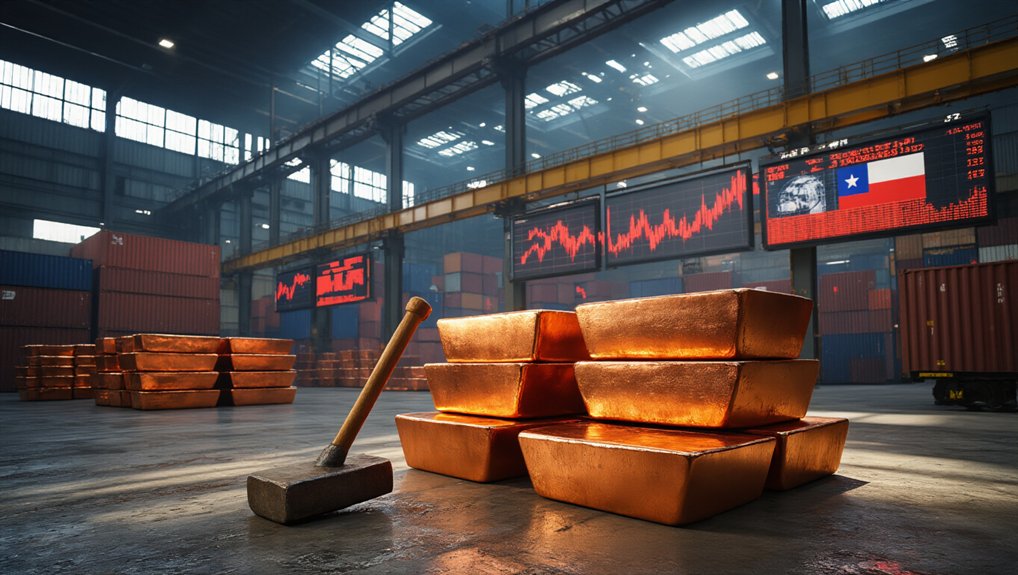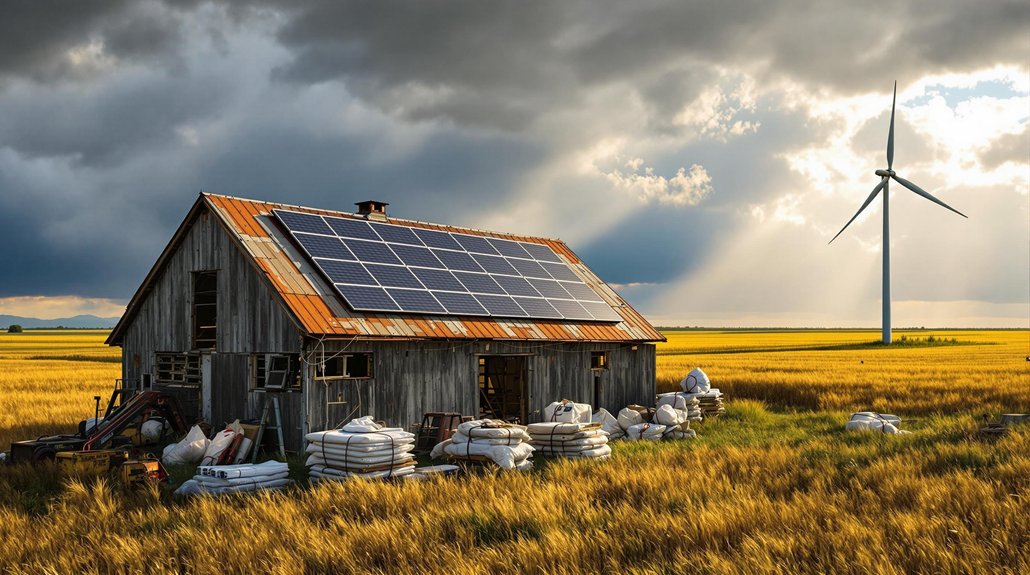Global markets tumbled Thursday as President Trump released a stunning 50% tariff on copper imports, sending the metal’s price skyrocketing to record highs. The announcement left traders scrambling and market analysts reaching for antacids. Copper—that reddish metal found in everything from your phone to your house wiring—suddenly became a whole lot pricier.
The move mirrors Trump’s earlier 50% tariffs on steel and aluminum imports from June. Not subtle. A 90-day negotiation window remains open until August 1, but nobody’s holding their breath for a kumbaya moment in international trade relations.
Nearly half of America’s copper comes from overseas, with Chile being the biggest supplier. That’s a problem. You can’t just snap your fingers and create a copper mine. Jefferies analysts bluntly stated what everyone’s thinking: U.S. copper self-sufficiency is a pipe dream for at least a decade.
Citigroup called this a “watershed moment” for copper markets. No kidding. With demand already soaring from data centers, EVs, and power companies, this tariff is like throwing gasoline on a bonfire. The tariff announcement was made during a Cabinet meeting where other trade matters were also discussed. The 10% blanket tariff on all nations remains in effect too, because apparently 50% wasn’t enough of a statement.
Industries dependent on copper—electronics, housing, appliances—now face higher costs. These will inevitably pass to consumers. Sorry about your next refrigerator purchase.
Copper scrap has been excluded from the tariffs, offering a small breathing space. But America’s recycling infrastructure can’t possibly fill the gap. It’s like trying to fill a swimming pool with a garden hose.
Trump’s broader trade offensive includes threatening letters to South Korea and Japan, warning of 25% tariffs by August if they don’t play ball. It’s all part of an aggressive campaign spanning multiple industries and countries simultaneously.
Meanwhile, Chile and other major exporters watch nervously. Their economies rely heavily on copper exports to the U.S. This isn’t just a market hiccup—it’s potentially an economic earthquake for copper-producing nations. Similar to how tax haven practices cost governments hundreds of billions annually in lost revenue, these tariffs could significantly impact Chile’s economic stability. Chile’s President Gabriel Boric has called for clarity regarding the tariff implementation, highlighting international concerns about the sudden policy shift.









